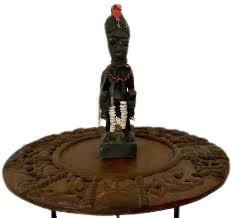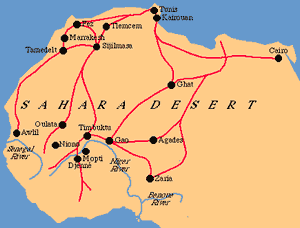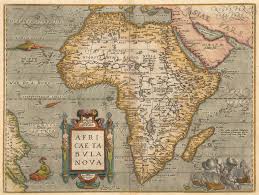Esu: The Divine Messenger and Keeper of Cosmic Order

Esu: The Divine Messenger and Keeper of Cosmic Order
Explore the role of Esu, the Yoruba divine messenger and guardian of crossroads, in African spirituality. Discover his place in tradition, myth, and cosmic balance.
Esu is one of the most profound and complex Orisa in Yoruba spirituality. A divine intermediary, enforcer, and messenger, Esu is central to maintaining balance and harmony in the cosmos. He embodies the principles of duality, representing both the forces of order and chaos, good and evil, all working together to sustain universal balance.
Esu’s presence is found in every shrine across Yoruba land, and his image or representation graces the entrances of well-established towns. In these spaces, Esu stands as the guardian of tradition and spiritual order.
The Role of Esu in Yoruba Cosmology
Esu acts as the special envoy between Orun (heaven) and Aye (earth), carrying messages and sacrifices to Olodumare and the other Orisa. He is often referred to as the divine enforcer, ensuring adherence to Olodumare’s will and punishing transgressions. Esu is also tasked with bringing blessings to those who honor divine laws while bringing calamity to those who stray from prescribed paths.
Esu's role as Onibode (gatekeeper) is pivotal. He controls access to spiritual realms and ensures that sacrifices are delivered correctly. Without Esu's approval, no ritual or offering can reach its intended destination. This makes him indispensable in Yoruba spirituality.
Praises of the Divine Messenger
Esu is celebrated through various oriki (praise songs) that capture his attributes, power, and enigmatic nature. Below is one of the most revered praise songs dedicated to Esu:
Praising the Divine Messenger
Esu,
(Divine Messenger,)
Esu Odara,
(Divine Messenger of Transformation,)
Esu lanlu ogirioko,
(Divine Messenger speak with power.)
Okunrin ori ita,
(Man of the crossroads.)
A jo langa langa lalu,
(Dance to the drum.)
A rin lanja lanja lalu,
(Tickle the toe of the drum.)
Ode ibi ija de mole,
(Move beyond strife.)
Ija ni otaru ba d'ele ife,
(Strife is contrary to the spirit of Heaven.)
To fi de omo won,
(Unite the unsteady feet of weaning children.)
Oro Esu to to to akoni,
(The word of the Divine Messenger is always respected.)
Ao fi ida re lale,
(We shall use your sword to touch the Earth.)
Esu ma se mi o,
(Divine Messenger, do not confuse me.)
Esu ma se mi o,
(Divine Messenger, do not confuse me.)
Esu ma se mi o,
(Divine Messenger, do not confuse me.)
Omo elomiran ni ko lo see,
(Let someone else be confused.)
Pa ado asubi da,
(Turn my suffering around.)
No ado asure si was,
(Give me the blessing of the calabash.)
Ase.
This praise emphasizes Esu’s dual role as a transformer and guide, seeking blessings while pleading for clarity and protection from confusion.
Esu’s Attributes and Symbolism
Esu is widely known by various names, each reflecting his multifaceted nature:
- Esu Odara: One who transforms and sets things right.
- Lagemo Orun: Sacred child of heaven.
- Elegbara: The mighty and powerful one.
- Ogiri Oko: Solid as a rock.
- Akeregbaye: Small but controls the world.
- Onibode: The gatekeeper.
- Papawara: The swift one.
Symbolism of Esu
Esu’s emblems vary and can include clay or wooden carvings, laterite rocks, or abstract representations. However, the most profound symbol of Esu lies within each individual’s Okan Aya (the heart), where decisions—whether good or bad—originate.
Esu as the Enforcer of Divine Will
Esu’s relationship with Orunmila, the Orisa of wisdom and divination, is especially significant. Acting as Orunmila’s right hand, Esu ensures the implementation of divinations and divine decrees. When Orunmila prescribes solutions through Ifa, Esu executes them, ensuring adherence to Olodumare’s will.
If sacrifices are incomplete or improperly offered, Esu may delay blessings or bring consequences. This role underscores why Esu is both revered and feared, as his actions reflect the natural balance of cause and effect in the universe.
Rituals and Offerings
Honoring Esu involves specific rituals and offerings, emphasizing his unique role among the Orisa.
Offerings for Esu:
- Kola nuts (obi)
- Bitter kola (orogbo)
- Gin (oti)
- Palm oil (epo pupa)
- Roasted corn (gbugburu)
- Rats (eku)
- Fish (eja)
- Cock (akuko adie)
- Pigeon (eyele)
- He-goat (obuko)
Forbidden Items
Esu must never be fed with adin (black oil from palm kernel seeds), as it is taboo.
Ritual Procedure:
- Begin by whistling six times—three times on each side of Esu’s symbol.
- Call Esu’s attention by saying “Apeje” three times (meaning “I have called; answer me”).
- Strike the left fist three times with the right palm, saying, “Ti aba ponso Imale aji” (If we knock, the deity will respond).
- Present offerings one by one while stating your requests.
- Conclude by breaking a kola nut, symbolizing unity and acceptance.
Esu: Beyond Misconceptions
Contrary to colonial and external religious misinterpretations, Esu is not the devil or Satan. In Yoruba theology, Esu represents the coexistence of opposites, embodying the delicate balance between good and evil. Esu is a divine enforcer, not a malevolent being, and his actions are always tied to maintaining cosmic order.
Esu’s reputation as a trickster stems from his ability to test devotion, reveal hidden truths, and expose flaws in character. These qualities are not malicious but necessary for growth and alignment with divine will.
Conclusion
Esu stands as a guardian of cosmic balance, a mediator between realms, and a divine enforcer of justice. His praise songs, rituals, and symbolism reflect his vital role in Yoruba spirituality. Through his guidance, blessings are secured, and harmony is maintained.
To understand Esu is to embrace the Yoruba philosophy of balance and interconnectedness, where the forces of good and evil coexist to sustain the universe.
Esu Odara!


